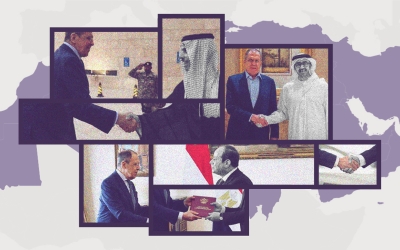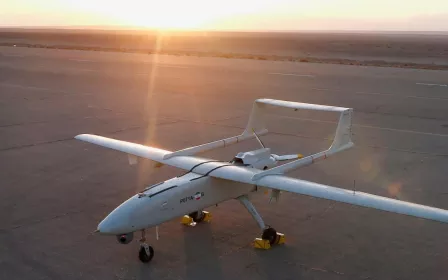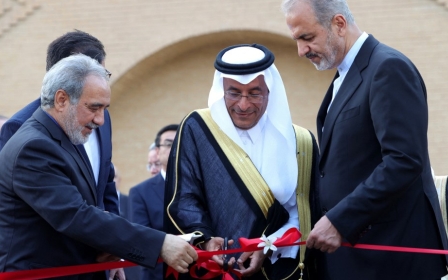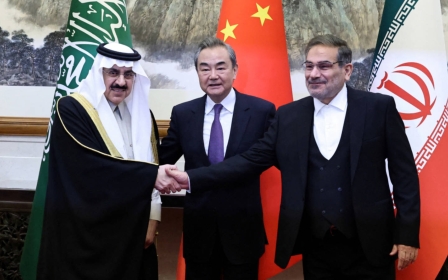Iranians lash out at Russia after Moscow wades into Gulf territorial row
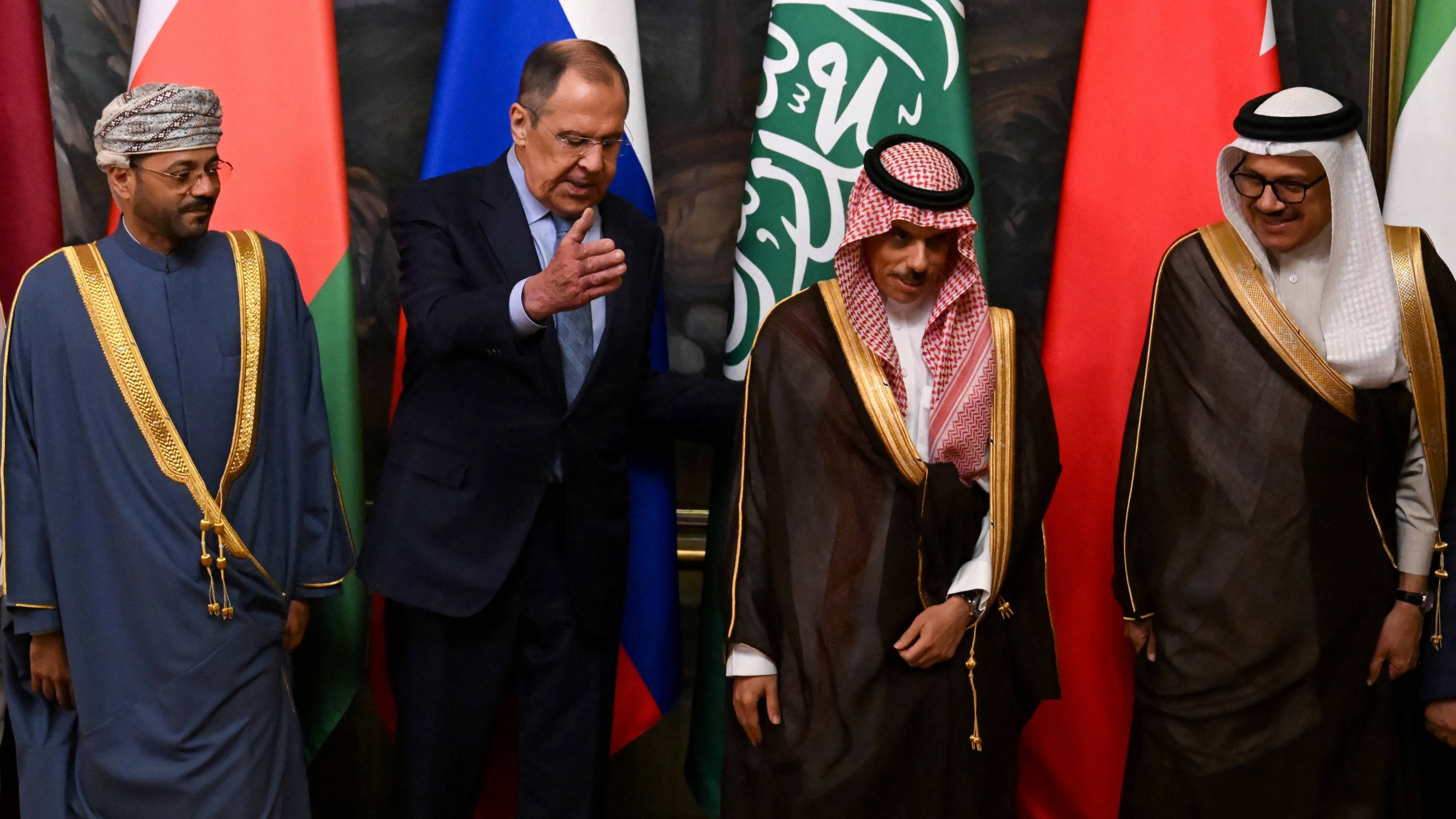
Russia has waded into a territorial dispute in the Gulf this week, provoking a rare outpouring of criticism from its regional partner Iran.
On Monday, Russia and the Gulf Cooperation Council (GCC) issued a joint statement in support of the United Arab Emirates' claim on three islands in the Gulf that Tehran argues are Iranian. The move echoed a similar statement issued by China last year.
After over a decade of growing ties and partnership between Tehran and Moscow, this latest statement has pushed former government officials and prominent figures in Iran to question the effectiveness of the Islamic Republic's "Look to the East" policy.
The Gulf and the disputed islands of Greater Tunb, Lesser Tunb and Abu Musa are matters of significant national pride for Iran, making the public highly sensitive to any positions taken on this issue.
The territorial disputes between Iran and the UAE over these islands have persisted for decades, with Abu Dhabi consistently asserting its claims.
New MEE newsletter: Jerusalem Dispatch
Sign up to get the latest insights and analysis on Israel-Palestine, alongside Turkey Unpacked and other MEE newsletters
In response to the statement, the Iranian foreign ministry summoned the Russian ambassador and expressed its "protest", asking for Russia to reverse course.
Ali Akbar Velayati, an adviser to Iran's supreme leader, meanwhile called on Russian leaders not to be naive.
He said he was worried Russia believed "confirming an irrelevant claim would pave the way for good economic relations with the UAE in the future".
Notably, Iran's government news agency IRNA stated that Russia was not a strategic ally, suggesting that the partnership between the two countries is more of a tactical one to counter the perceived threat from the United States, and that their positions diverge on most international issues.
When Iran's Foreign Minister Hossein Amir Abdollahian indirectly criticised Moscow's position in a tweet, he himself was lambasted online for appearing to not even dare name Russia in his post.
'Aren't you ashamed?'
A foreign policy analyst, who wished to remain anonymous for security reasons, told Middle East Eye that "Russia needs cooperation with Arab countries as they can invest in Russia both in the field of energy and trade".
"In the joint [Russia-GCC] summit, it was very important for Russia to give a concession to the Arabs. The fact that the foreign ministers of the Persian Gulf countries go to Moscow in this situation certainly required concessions that the Russians made at Iran's expense."
However, the analyst also noted that "ideological factors" would prevent Iran from gravitating towards the West, despite Russia's action.
'If Russia had even the slightest concern about Iran's shift in position, they might not have taken such a conciliatory approach with the Arab states'
- Foreign policy analyst
"It appears that the Russians are well aware of this, which is why they have adopted a more open and clear stance. If Russia had even the slightest concern about Iran's shift in position, they might not have taken such a conciliatory approach with the Arab states and might have treated Iran differently," he said.
On social media, prominent figures queued up to criticise both Russia's stance and the Iranian government's response.
Morteza Mir, a reformist cleric, addressed the Islamic Republic, saying: "Aren't you really ashamed? If one of the western countries, instead of China and Russia, had questioned Iran's sovereignty over the three islands, would you have left an undamaged wall for their embassies?"
Others noted that Iran is believed to have helped Russia by supplying it with drones and ammunition to use in Ukraine – allegations that have poured more western scrutiny and criticism on Tehran.
"After so much help to Russia in the Ukraine war, Russia, like China, took the side of the UAE in the issue of the Iranian islands. Why not? What is the isolated sanctioned Iran going to do? 'Looking to the East' [has] led to the bowing to the East!" tweeted activist Mohammad Hossein Karimi-pour.
Former diplomats join the fray
The row naturally has drawn in former Iranian diplomats, many of whom poured scorn on the government's belief that Iran could depend on eastern nations and shun the West.
"Apparently, Iran's friends do not pay much attention to Iran's demands and prioritise our rivals' demands," Qassem Mohebali, a former director general of the Middle East desk at Iran's Ministry of Foreign Affairs, told local media.
Hamid Abutalebi, a former diplomat and an ex-adviser to former president Hassan Rouhani, slammed the "Look to the East" policy, saying that China was just rewarded last year for recognising Emirati sovereignty over the islands and given a key role in the Iran-Saudi Arabia normalisation deal in March.
Therefore, "such a position was not unexpected from Russia, which has committed unforgivable betrayals against the Iranian nation and separated an important part of our beloved country for more than a hundred years", he tweeted.
Former foreign minister Mohammad Javad Zarif, meanwhile, said he believed that Iran has had a mistaken perception of its relationship with Russia, assuming that Moscow could be its ally. He, however, added that "being anti-Russian and anti-American is dangerous for Iran".
A former Iranian diplomat, speaking on condition of anonymity, told MEE that the current challenges faced by Iran could be traced back to a "flawed policy of exclusively looking towards the East while excluding the West".
Lamenting the lack of strong ties with Europe and the US, the ex-diplomat emphasised that this limitation leaves Iran with no choice but to rely on Russia and China, as they are aware that Iran lacks alternative options.
The former diplomat further stressed the importance of maintaining a balanced relationship with both the East and the West.
"Had Iran achieved such equilibrium, many of the existing problems could have been avoided."
Middle East Eye delivers independent and unrivalled coverage and analysis of the Middle East, North Africa and beyond. To learn more about republishing this content and the associated fees, please fill out this form. More about MEE can be found here.


